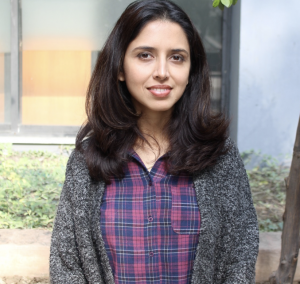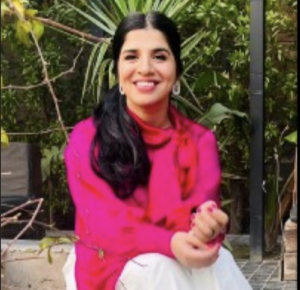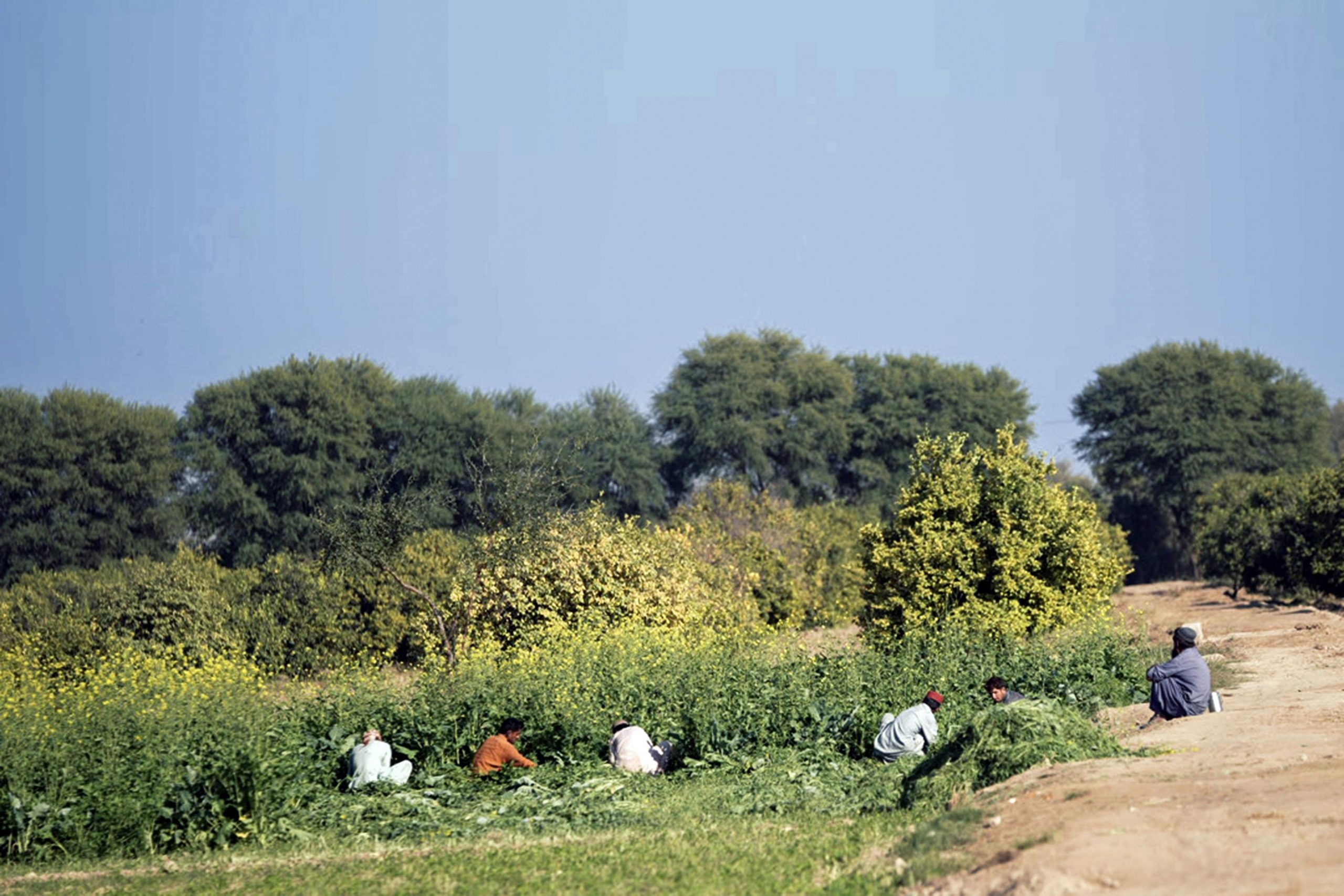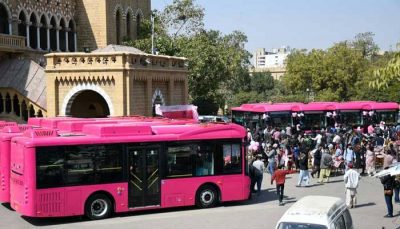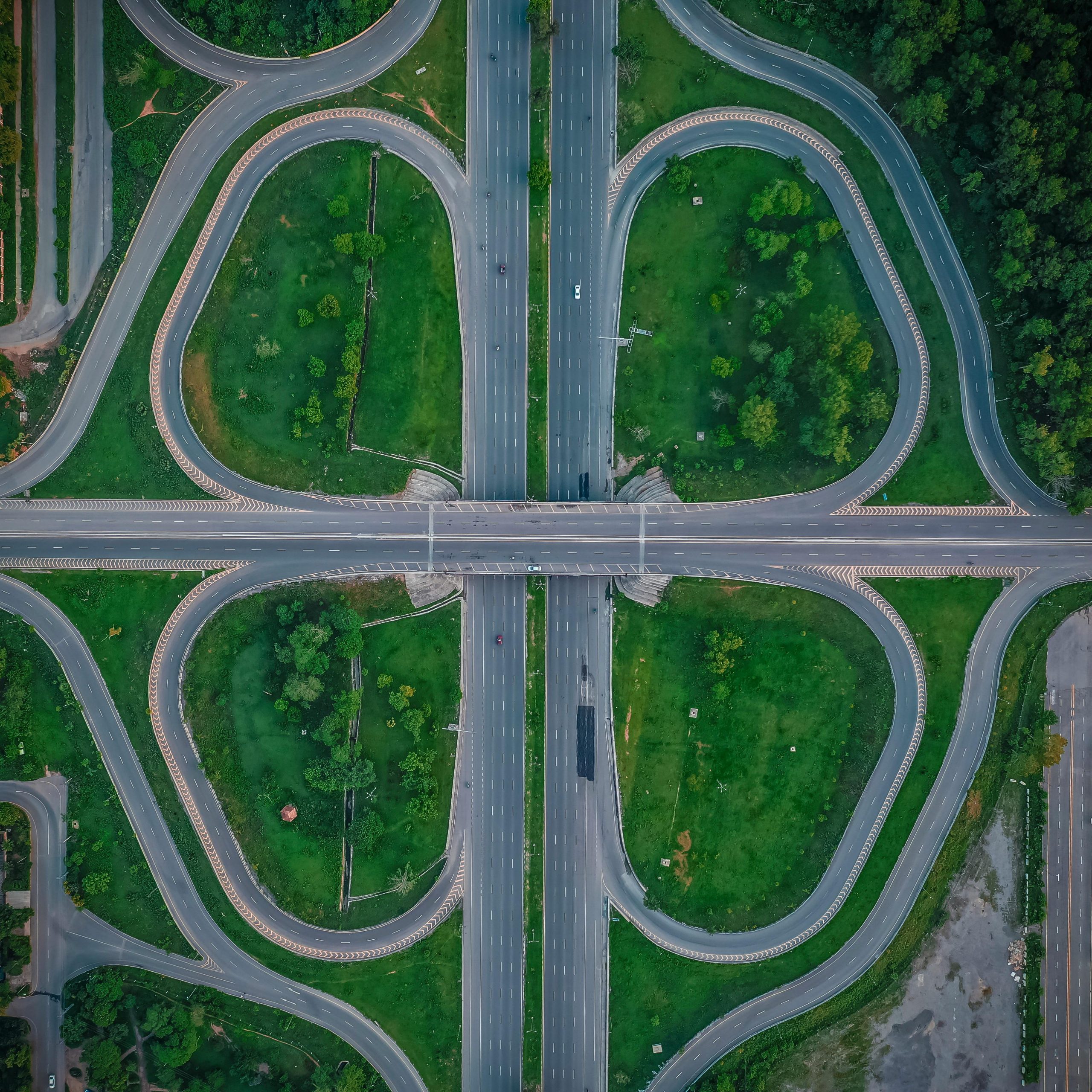In January 2018, when the abduction, rape and murder of Zainab Ansari, a 7-year-old girl in Kasur – the latest at the time in a series of brutal instances of sexual abuse of minors in the area – led to a public furor[i], we set out to map civil society organizations (“CSOs”) in Pakistan working in the field of child abuse. At the outset, we decided to spread the net wide and to reach out to CSOs whose work we identified at face value as relating broadly to child rights and child protection (“CRCP”).[ii] Our working assumptions were that CSOs working directly on child abuse were likely to be small in number, and that even within this sample CSOs were likely to integrate their work on child abuse within a larger agenda on CRCP. The objective of this mapping exercise at the time was threefold: firstly, to simply document the credible CSOs that were actively involved in some way or to some extent in CRCP, and to get a sense of how inclusive these CRCP agendas were of issues related to child abuse, in particular sex abuse, issues; secondly, to observe whether and how CSOs mobilize around specific incidents or events (presently, the highly publicized case of Zainab); and thirdly, to explore the quality of voluntary linkages between different CSOs or amongst clusters of CSOs working on CRCP. The latter objective was motivated by our curiosity to learn more about how thick and overlapping the CSO network is in relation to child abuse issues. In other words, what is the nature of connections between CSOs and to what extent are these connections based on mutual relations of trust and reciprocity (thick); and how many CSOs are involved in the same or similar kind of activity (overlapping). These kinds of questions about voluntary association between CSOs have implications for evolving a broader consensus on a given issue or set of issues, openness to information transfer and resource pooling, and capacity for collective action and mobilization.
Below we present a list of CSOs we identified and mapped (i.e. interviewed in person or over the phone) between January and March 2018. This is by no means an exhaustive list. Because of paucity of both time and access to information, we limited ourselves to 13 CSOs that had a visible presence online and responded to our request for a candid conversation on their organizational structure, nature of work, funding sources, partnerships, general perceptions about other CSOs and government departments working in the same field, and sphere of work particularly in relation to child abuse (with a particular focus on sex abuse). We categorize these 13 CSOs according to a typology based on three ideal types of core CSO activity: “service providers,” “capacity builders,” and “advocacy organizations.” The combinations we have identified on the basis of this typology are: service providers, service providers & capacity builders, service providers & advocacy organizations, capacity builders & advocacy organizations, service providers, capacity builders & advocacy organizations, and advocacy organizations.[iii] We hope to add to this list over the course of the coming months and to expand our inquiry to issues beyond child abuse in order to further develop our working hypotheses on the nature and organization of civil society spaces in Pakistan. We end with some early observations from our mapping exercise.
SERVICE PROVIDERS
(1) Bali Memorial Trust
Bali is a Lahore-based CSO that provides “holistic services to the underprivileged,” including education, health, old people’s sanctuaries, girls’ shelters and orphanages, a women’s crisis center, and a general helpline center. Bali’s mantra is that its services are “broad and inclusive” and “cater to the needs of the community.” The first point of contact at Bali is through its weekly “walk-in days” where anyone in need of assistance can simply drop by. Bali aims to deal with all facets of a crisis, providing some services themselves and outsourcing others through a referral system. Services include medical help, school stipends, psychological help, speech therapy for children, and sanctuaries and shelters.
Rabia Usman – the Program Manager at Bali – explains that child abuse is seldom reported directly. Recognition of such issues usually arises during conversations with women approaching Bali in crisis situations. Abused children who need psychological help along with temporary shelter can stay at an in-house crisis center that Bali runs from its office premises. Importantly, this crisis center attempts to plug a major loophole in the existing legal framework in Punjab: it offers shelter to boys in the 16-18 “transitional” age group who have been left out of the protective cover provided by the Child Protection Bureau.
(2) Idara Aaghosh
Aaghosh is a Lahore-based CSO that works in the field of CRCP, with a focus on the emotional well-being of abused, exploited and neglected children on the street, runaway children, and those involved in child labor, delinquent or criminal activity, or sex trade. The core services provided by Aaghosh have shifted in the past few years due to various constraints, including funding problems and governmental pressures.
Naseer Ahmed – the founder of and General Secretary at Aaghosh – shares that in the early 2000s, Aaghosh focused on rehabilitating abused children through education. It set up a charitable school network across Punjab (comprising 36 schools) known as the Aaghosh Schools System. At its peak, this System had a total enrolment of 2,000 children. A change in government policies, however, compelled the System to shut down, causing Aaghosh to transfer all its students to government schools while continuing to help and liaison with the children’s families. Many children dropped out of school during this transition. After the closure of the Aaghosh Schools, Aaghosh began community building work in Sargodha, including renovation of baithaks or community centers, vocational training for women, and sensitization of Imams at local mosques to mobilize communities to enroll out-of-school children in school. Through this work, Aaghosh has dealt indirectly with child abuse issues on a case-by-case basis but concedes its inability to expand the scope of this intervention because of the “cultural context.”
(3) Ittehad Foundation
Ittehad is a Kasur-based grass-roots CSO with a broad mission of empowerment, literacy and capacity-building of women, children and youth. One limb of its work relates to achieving CRCP through children’s education and community awareness programs. Ittehad provides both formal and non-formal education to children in Kasur free of cost. It started its operations from a small non-formal center in a katchi abadi in 2001 with 30 children when there were no public schools in the area. The aim was to create a smooth transition for out-of-school children, including those involved in child labor. This first center is now a formal school with a current capacity of 150 children. Ittehad continues to operate a number of non-formal schools in localities with high child labor populations in order to integrate education and awareness about child protection into this very vulnerable group of children.
Irshad Safdar – the current Chairperson of Ittehad – states that since January 2018 when the incident of the rape and murder of Zainab arose, Ittehad has been partnering with Sahil (see below) to develop and integrate CRCP awareness materials into the curricula for both their formal and non-formal schools. Ittehad plans to work not only with children and students, but also parents and communities through CRCP trainings and community mobilization.
(4) Alpha Foundation
Alpha is a Kasur-based grass-roots CSO working in the field of literacy and community development with a focus on children between the ages of 5 and 14 who are employed as labor in tanneries and leather industries. As part of a recent 5-year program, Alpha has established 12 non-formal education centers across the Kasur district for providing literacy programs to working children who are not enrolled in school. These centers allow children to work while motivating them to experience a school-like experience for a few hours every day. Other components of this program are mobilization of mothers and communities to allow their children to attend the centers after work, as well as awareness programs for factory owners to facilitate working children’s participation in Alpha’s centers. Through this program, Alpha has enabled 180 girl-students to sit for grade 5 board exams and mainstream into formal public schools.
Jawwad Bukhari – the Chairperson of Alpha – states that like other Kasur-based CSOs, Alpha is presently collaborating with Sahil (see below) to integrate CRCP awareness materials into their educational programs in their non-formal centers.
(5) Good Thinkers Organization (GTO)
GTO is a Kasur-based grass-roots CSO working broadly on human development with a special focus on transgender communities and women, and to a lesser extent, on children. In relation to their work on children, GTO has focused in the recent past on mainstreaming out-of-school children through “drop-in centers” for working and street children to transition them to public schools over time. In 2012, GTO began with 55 children, and was successful in mainstreaming over 200 children in public schools in Kasur through Grade 5 board exams. With respect to child abuse in particular, GTO organized awareness campaigns through local events in both 2015 and 2018, and also provided legal aid and other legal support for some children affected by the child sexual abuse and trafficking scandal that emerged in 2015.
Awais – the Program Officer at GTO – shares that GTO has not been able to sustain much of its work on children because of major financial constraints. He explains that quite apart from the government refusing to allocate funds to child rights issues, international donors dealing with child rights are generally very reluctant to come to Kasur, and funding is fast drying up in this area.
SERVICE PROVIDERS & CAPACITY BUILDERS
(6) KONPAL Child Abuse Prevention Society
KONPAL is a Karachi-based CSO that has a direct focus on child abuse, including child sex abuse and commercial sexual exploitation, child labor in hazardous occupations, and violence against children generally. KONPAL works with four main groups of “stakeholders”: doctors, teachers, mothers and children. Its larger aim is to create awareness among these stakeholders of issues relating to child abuse.
Dr. Aisha Mehnaz – the current Chairperson – explains that because a large majority of professionals associated with KONPAL are doctors, most of their activities tend to be centered on doctors and hospitals. For instance, KONPAL has set up Child Protection Committees (“CPCs”) in a number of major hospitals in Karachi as a way of integrating medical treatment for child abuse into the hospitals’ service provision. Through these committees, KONPAL trains medical staff to recognize and deal with cases of sex abuse, corporal punishment and parental neglect of children coming into these hospitals for medical treatment, and to provide rehabilitative care to the affected children. Some of the CPCs continue to function, but KONPAL is no longer directly involved in funding or monitoring them because of resistance from government hospitals and the general lack of prioritization by the government of the health sector.
More recently, KONPAL’s work has shifted to providing capacity-building trainings to doctors and medical practitioners generally to help them identify and appropriately respond to instances of child abuse.
(7) Protection and Help of Children Against Abuse and Neglect (PAHCHAAN)
PAHCHAAN is a Lahore-based CSO with a mission to protect and empower children against abuse and neglect and build the capacity of care-givers and duty-bearers (parents, service-providers and government) in relation to child abuse. PAHCHAAN’s approach to CRCP is to focus on the larger “ecological environment” of children; in other words, to integrate children’s rights into healthcare, education, and community mobilization. PAHCHAAN’s earliest project, now running for over 10 years, is the Child Protection Unit at Children’s Hospital, Lahore (“CPU”). The CPU comprises of regular hospital staff that has been trained by PAHCHAAN to make early detections of a broad spectrum of abuse cases, including neglect, violence, psychological abuse, and sex abuse. If this trained staff suspects child abuse, they report it to a Child Protection Officer (“CPO”) – PAHCHAAN’s trained psychologist – in addition to providing medical treatment. The CPO then makes her own assessment and offers counselling services to the abused child and his/her parents and family. PAHCHAAN also covers social support expenditures for patients being counseled by the CPO (such as clothes, food, toys, etc.) as a large majority of them come from outside of Lahore straight into emergency.
Mehak Zafar – the Coordinator at PAHCHAAN – explains that the organization also offers legal help where it is needed through referral to a small group of pro bono lawyers. However, “95 % of the times” people decline legal help, partly because they don’t believe that there is a moral problem with child abuse and partly because of the complications they anticipate in dealing with the legal system.
PAHCHAAN’s more recent work is centered on children’s education. This includes community mobilization programs that seek to sensitize communities toward enrolling out-of-school children in school, and to raise awareness on important social issues like cleanliness, child marriage, etc. The latest education-centered program involves establishing Child Rights Departments (“CPDs”) in college and higher education institutions to integrate child protection into academia. PAHCHAAN has just set up its first CPD at the School of Integrated Social Sciences at University of Lahore.
SERVICE PROVIDERS & ADVOCACY ORGANIZATIONS
(8) Society for the Protection of the Rights of the Child (SPARC)
SPARC is a country-wide CSO, headquartered in Islamabad with regional offices in Rawalpindi, Hyderabad, Peshawar, and Multan. Its mission is to promote and protect the rights of children through advocacy supported by research, awareness raising, service delivery, and human and institutional development. Its sphere of action relates to child labor, bonded labor, street children, juvenile justice, education, child marriage, and child sex abuse. SPARC’s forte is its advocacy for child rights, for which it releases an annual “State of Pakistan’s Children” report. In addition to this flagship report, SPARC’s current advocacy focus is on juvenile justice and the responsibilities of the relevant authorities under the Juvenile Justice System Ordinance, 2000. Aligned with this advocacy is SPARC’s work on improving conditions in juvenile prisons and securing the release of as many children as possible from jails. On the service provision front, SPARC runs several Centers for Street Children (“CSCs”) – though a few have been shut down recently due to lack of funding – and provides technical and vocational skills to 6,000 girls and young women in Multan and Muzzafargarh.
Farshad Iqbal – the Coordinator at the Islamabad office – states that this latter project relating to provision of technical and vocational skills caters to adolescent and college-level girls between the ages of 16 and 18 from very poor households who have been victims of early and forced child marriages. SPARC, he says, is filling a big vacuum in the government’s child protection policy that does not empower the Ministry of Human Rights to provide dedicated child protection units for girls of this age group.
With respect to child abuse, SPARC reports on child abuse and related issues annually in its flagship report. It also undertook a special fact-finding on Zainab’s case in early 2018, which is available, at the time of writing, on SPARC’s website.
(9) AGHS Child Rights Unit (CRU)
CRU is a Lahore-based CSO focusing on advocacy, awareness, and legislative reform around issues relating to child protection, including violence against children, child labor, girl child marriages, and juvenile justice. The core activity of CRU is highlighting systemic and procedural faults in the criminal justice system in order to inform and push for legislative reform. Two areas in which CRU has worked extensively to influence policy and legislation are juvenile justice and prison reform for vulnerable groups (mainly women and children). Specially with respect to prison reform, CRU undertakes regular jail visits to document all the serious issues with custodial methodology, and to closely monitor children in jails, most of whom are simply accompanying their incarcerated mothers. In addition, CRU organizes community awareness programs with parents on issues of child labor, child sex abuse, and child marriages.
CRU does not primarily focus on legal aid or assistance. However, it does at times deal with “urgent relief cases” in relation to children in jail and/or involved in criminal police investigation or trial processes as victims, the accused or witnesses. In such cases, CRU helps in taking children out of jail, getting children bail, or monitoring trial processes involving children. It also refers or facilitates the transfer of criminal cases involving children to the newly established Child Protection Courts in Punjab.
Sabahat Riaz – the Coordinator at CRU – explains that the CRU was originally a program of the AGHS Legal Aid Cell but is now physically and financially housed within Dastak, a sister concern of the AGHS Legal Aid Cell that runs a shelter house for women and children. This allows CRU to be fully integrated into the services offered by Dastak, while also enabling it to refer cases of legal aid to the AGHS Legal Aid Cell. However, CRU is not a financially independent entity and depends on Dastak for sustainability.
(10) War Against Rape (WAR)
WAR is a Karachi-based CSO with a mission to advocate on behalf and for the rights of women and child victims of sex abuse and violence, and to provide crisis interventions for survivors of rape and domestic violence through free services like legal aid, psycho-therapeutic counseling and basic medical assistance. WAR’s core activities have remained fairly consistent over time and include ongoing awareness raising sessions at schools and other educational institutions about sexual violence, initial as well as long-term counseling and support for survivors of rape and domestic violence, and provision of free legal aid and legal counseling for such victims. WAR also has an aggressive advocacy component for legislative reform.
Beena Hasan – the Coordinator at WAR – states that WAR is the only not-for-profit organization in Karachi that provides such specialized services to survivors of sex abuse and domestic violence. WAR investigates a hundred cases of rape in Karachi each year on average and encourages survivors to press charges against the perpetrators. It prosecutes 20 cases on average within Karachi in a year – but it is unclear what proportion of these cases relates to child sex abuse.
CAPACITY BUILDERS & ADVOCACY ORGANIZATIONS
(11) Aahung
Aahung is a Karachi-based CSO with a mission to improve the sexual and reproductive health and rights (“SRHR”) of women, men and adolescents. Aahung is the pioneering – and continues to be the leading – CSO on SRHR in Pakistan. In relation to children, Aahung has been working on the prevention of child sex abuse for almost a decade, mostly through training of teachers and parents to talk about sex abuse with children and young people. The organization has developed a Life Skills Based Education (“LSBE”) program, which is a comprehensive curriculum focusing on body protection and child sex abuse prevention. Through the LSBE, Aahung integrates sexual and reproductive health awareness along with prevention awareness for sex abuse into secondary school curricula. Hence, Aahung works closely with schools and community-based organizations.
Aisha Ijaz – the Program Manager at Aahung – states that the organization was experiencing serious bottlenecks in operationalizing the LSBE in public schools because of non-cooperation from the Sindh government. But after Zainab’s case in early 2018, it was finally able to get a firm commitment from the government, which is now taking tangible steps to incorporate LSBE into the public secondary school curriculum.
SERVICE PROVIDERS, CAPACITY BUILDERS & ADVOCACY ORGANIZATIONS
(12) Sahil
Sahil is a country-wide CSO, headquartered in Islamabad with regional offices in Lahore, Sukkur, Abbottabad and Jaffarabad. Its mission relates directly to child protection through the development of “a protective environment for children free from all forms of violence,” with a particular focus on child sex abuse. Each Sahil office provides two core services through trained resident staff: legal advice and referral, and psychological counselling.
Sahil’s work can be divided into four components. The first is a teacher training program on child protection, consisting of resource material for educational practitioners to create awareness around child abuse, in particular child sex abuse. Sameera – the Resident Psychologist at the Lahore Office – states that Sahil’s material is culturally sensitive and contains “soft messages” that can effectively get otherwise taboo concepts across without being offensive. Sahil also sensitizes and trains teachers to identify child abuse cases in the classroom and to communicate with abused children. Sahil’s teacher training programs are currently running in both private and public schools across the country.
The second component is Child Protection Networks (“CPNs”) which are essentially community programs offering general health awareness for both children and adolescents as well as awareness about child abuse. Sahil is presently involved in setting up CPNs at the village level with representation in Union Councils so that they may be linked through a larger referral support system to relevant public and private organizations at the district level. The third component of Sahil’s work is counselling services for affected children and families on a walk-in basis. The fourth is legal advice and aid provided through a resident legal advisor and a referral network of lawyers funded by Sahil. Most legal aid cases come to Sahil through teachers, community members in the CPNs, and Sahil’s own helpline.
ADVOCACY ORGANIZATIONS
(13) Human Rights Commission of Pakistan (HRCP)
This mapping exercise would be incomplete without a mention of HRCP as the leading human rights advocacy organization in Pakistan. Fact-finding missions are HRCP’s flagship advocacy output. In 2015, HRCP undertook a middle-tier fact-finding mission on the child sex abuse and trafficking scandal in Kasur in partnership with a few other CSOs (including AGHS and South Asia Partnership Pakistan (SAP-PK)). The mission was led by Hina Jillani. A copy of the main observations from the fact-finding mission is available on file with IDEAS.
Some Early Observations
- Broadly, the 13 CSOs we mapped fell into 5 substantive categories: (i) general crisis assistance and advocacy, (ii) child rights and child protection (CRCP), (iii) sexual and reproductive health and rights (SRHR), (iv) sex abuse and violence, and (v) specifically or predominantly child sex abuse. Most CSOs fit into (ii), 2 fell into (i), only 1 each fell into (iii) and (iv), and 2 fell into (v). The CSOs in this last category of child sex abuse are KONPAL and Sahil. All the other 11 respond to child abuse and/or sex abuse in some manner or degree, whether directly or indirectly. Mostly, however, activities and advocacy around child sex abuse are part either of a larger menu of issues in relation to CRCP or of a broader target population that includes children as one of more vulnerable groups. Nonetheless, there is much overlapping of issues relating to children in these CSOs, especially in those working on CRCP.
- As expected, we found much variation in the size, organizational structure, capacity, and social capital of CSOs working on CRCP. This very small sample size offers some very preliminary and tentative observations. Firstly, local grass-roots organizations tend largely to be service providers. This seems to go hand in hand with greater flexibility in the nature of their work, so they can shift periodically from one target population or issue to another in order to obtain sufficient and diversified funding, or a “survival budget,” to remain afloat. The nature of their work is, thus, either broadly defined or project-based. Secondly, service providers, whether at the grass-roots or higher level, tend generally to struggle financially and are more susceptible to quick changes in their core focus or activities. Thirdly, service providers who have graduated to becoming service providers & capacity builders tend to report greater financial stability, though at times at the expense of the service provision. This also seems to be the case for service providers & advocacy organizations which tend to have a relatively larger portfolio of advocacy activities. Finally, CSOs that rest on a very narrowly defined or highly specialized issue or activity tend also to have more organizational stability, report less resource constraints, and show greater consistency and focus in relation to their core work (examples include WAR (legal aid for victims of sex abuse), Aahung (SRHR), and Sahil (child abuse).
- While we did not include governmental departments and entities focused on CRCP in our preliminary study, we were able to elicit responses from many of the CSOs we mapped about the quality of their interaction with the government sector. We noted four kinds of CSO-government links that potentially impact the organization of civil society, the nature of CSOs’ work, and both the enabling and constraining factors that shape CSOs’ core activities. The first kind of link was defined by the need for CSOs involved in advocacy to lobby the government for legislative reform. Such activity necessitated a CSO-government link. The second kind of link was between CSOs involved in capacity-building of government-sector employees working in the CRCP field. Once again, this sort of activity positioned such CSOs within an overlapping space with the government. The third kind of link was between CSOs involved in capacity-building of specific stakeholders straddling the public and private sectors, such as teachers and doctors. This meant that while such CSOs did not routinely interact with the government, they nonetheless required the government’s formal cooperation to achieve scale. The fourth kind of link was an indirect one, in which CSOs involved in service provision designed CRCP programs and activities in response to the vacuum left behind by the government. Such CSOs tended to operate in a largely independent sphere.
- One very unexpected discovery while trying to gauge the institutional links and voluntary connections between the CSOs we mapped was that many of them were members of an increasingly organized group of CSOs known as the Child Rights Movement or “CRM.” The CRM is a country-wide network with secretariats at the national and provincial levels. The CRM secretariats are rotated annually through an electoral process that is based on a formal voting mechanism involving all CRM member organizations that fulfill minimum participation requirements in CRM dialogues and meetings. Organizations that hold the secretariat in any given year are expected to facilitate dialogue and consensus on the CRM’s collective agenda, implement an actionable plan relating to the agenda, lobby and liaison with concerned government departments for child rights, and lead and execute CRM’s advocacy targets. SPARC holds the national secretariat for CRM in 2018. There are roughly 46 CRM members at the national level, and 33 in CRM-Punjab. This remarkable voluntary association of CSOs that has emerged in the last decade offers a fertile field for studying this particular civil society space in Pakistan, its underlying social networks and relations, its internal structure and politics, and its modes of mobilization on issues relating to child rights.
Maryam S. Khan is a Resident Research Fellow at the Institute of Development and Economic Alternatives (IDEAS).
Dania Mukhtar holds a Masters degree from Columbia Law School and is a Public Policy expert at Meta.
[i] https://www.bbc.com/news/world-asia-43096344
[ii] We excluded from our search CSOs that were primarily or wholly working in the general education and health sectors.
[iii] The boundaries between service provision, capacity building and advocacy can oftentimes be indistinct. We acknowledge that this typology is one of a number of possible ways of categorizing CSOs. Note that the CSOs in our list may or may not fully identify with this typological categorization, but based on our qualitative understanding of the CSOs’ work, we believe that this is a reasonable reflection of their current core activities.


